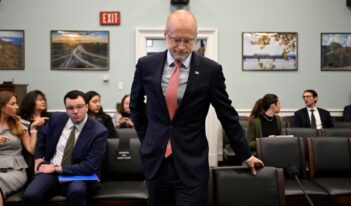
New opinion highlights debate over the role of antitrust law in FCC disputes.
The United States Court of Appeals for the D.C. Circuit issued an opinion in late May – on appeal from a Federal Communications Commission (FCC) proceeding – that renews debate over what role antitrust law should play in FCC regulation. The case arose from a dispute between the Tennis Channel and the major cable operator, Comcast, and is one in a long line of legal disputes between cable channels and cable operators over the terms of so-called carriage contracts between the two.
The case centered on Comcast’s 2009 decision rejecting the Tennis Channel’s request to move to a cable distribution tier alongside the Comcast-owned Golf and Versus channels—a move intended to ensure broader distribution for the Tennis Channel. Following Comcast’s refusal, the Tennis Channel filed a complaint with the FCC alleging that Comcast’s conduct discriminated against it in violation of Section 616 of the Communications Act and related FCC rules.
Under Section 616, the FCC is required to implement rules designed to prevent cable operators such as Comcast from “engaging in conduct the effect of which is to unreasonably restrain the ability of an unaffiliated video programming vendor to compete fairly,” in particular by discriminating on the basis of affiliation or non-affiliation with the cable operator.
Last July, a sharply-divided FCC issued an order holding that Comcast had indeed violated Section 616, and it fined the cable operator $375,000. The Commission also ordered Comcast to carry the Tennis Channel “at the same level of distribution as Golf Channel and Versus.”
In defending its conduct before the FCC, Comcast argued that Section 616’s “unreasonably restrain” language should be read in light of the antitrust laws, under which Tennis Channel would have to demonstrate likely anticompetitive effects resulting from Comcast’s conduct. However, the Commission’s majority rejected this argument, finding that “Section 616 would serve no function if it existed simply as a redundant analogue to antitrust law,” and that “to read [the section] to simply echo antitrust law would frustrate Congress’s clear purpose” to grant the FCC new authority in this area.
Comcast appealed the FCC’s order to a three-judge panel of the D.C. Circuit. Writing for the panel majority, Judge Williams issued a narrow opinion finding for Comcast. The narrow issue identified by the court was whether the FCC’s evidence adequately supported its interpretation of Section 616. Judge Williams found ultimately that “even under the Commission’s interpretation of Section 616 (the correctness of which we assume for purposes of this decision), the Commission has failed to identify adequate evidence of unlawful discrimination.”
In contrast, Judge Kavanaugh’s considerably longer concurring opinion addressed much broader legal questions, including whether the antitrust laws should (and could) apply in FCC carriage disputes. According to Kavanaugh, Section 616’s “use of the phrase [‘unreasonably restrain’] – an antitrust term of art – establishes that the statute applies only to discrimination that amounts to an unreasonable restraint under antitrust law.” Moreover, according to Judge Kavanaugh, in order to find against Comcast under antitrust law the court would first have to find that Comcast possessed market power in a given market – in this case video programming distribution. Since Comcast only has a 24 percent share of the national video programming distribution market, the Tennis Channel’s claims could not survive the market power antitrust screen inherent in Section 616. Further, because the FCC had not taken this screen into account in its proceeding, Kavanaugh concluded that the FCC erred in finding that Comcast violated the section’s non-discrimination provisions.
Judge Kavanaugh is the latest conservative voice to raise the argument that antitrust ought to play a larger role in FCC proceedings. More than a decade ago now, communications lawyer Peter Huber published a book, Law and Disorder in Cyberspace, in which he argued that FCC disputes could be better handled by generalist judges applying antitrust law. And yet, it’s not entirely clear that even the conservative members of the Supreme Court necessarily share this view. In the Supreme Court’s 2004 landmark antitrust decision in Trinko, Justice Scalia found that “[a]ntitrust analysis must always be attuned to the particular structure and circumstances of the industry at issue.” He continued: “When there exists a regulatory structure designed to deter and remedy anticompetitive harm, the additional benefit to competition provided by antitrust enforcement will tend to be small, and it will be less plausible that the antitrust laws contemplate such additional scrutiny.”
Arguably, Justice Scalia’s language in Trinko supports the FCC’s position that Section 616’s proper interpretation excludes antitrust law. Of course, it’s also possible that a future Supreme Court – following Trinko – would find that the FCC’s actions in seeking to protect the Tennis Channel from discrimination did not, in fact, “deter and remedy anticompetitive harm,” but rather protected an individual competitor and not the competitive process, something that runs counter to antitrust’s goals.




